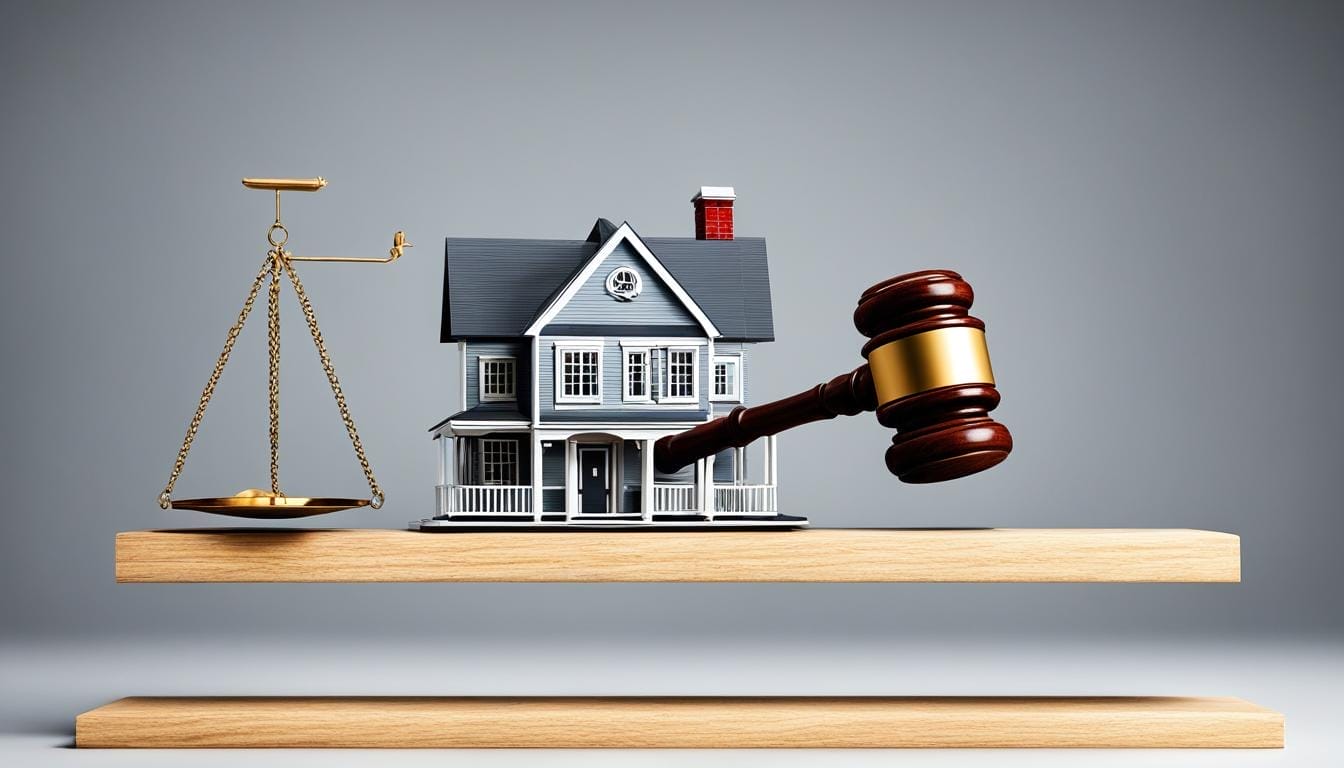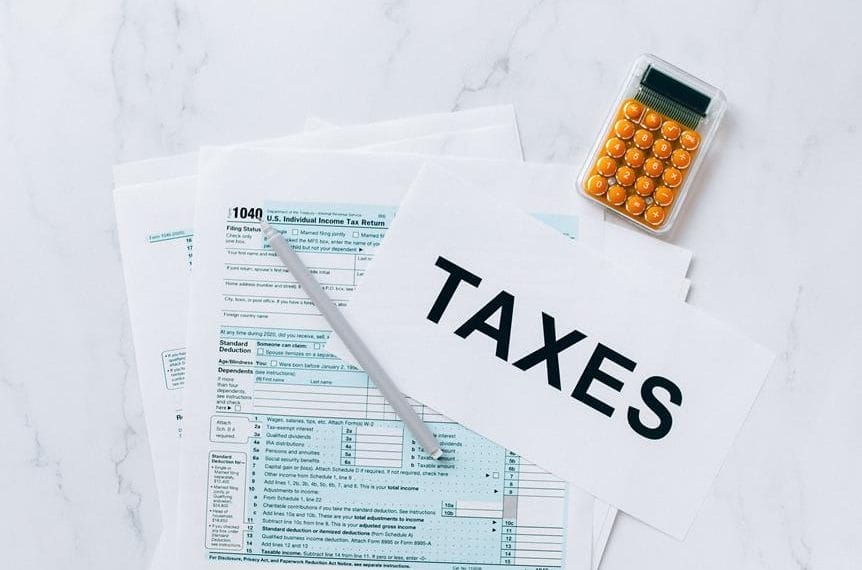When facing financial hardship, individuals often find themselves at crossroads, considering the challenging options of foreclosure and bankruptcy. The decisions made can have lasting consequences on their financial health and legal standing. It’s crucial to understand the potential financial consequences and legal ramifications associated with these choices, including asset loss, debt relief, credit score impact, and property rights.
Foreclosure, a process triggered by the inability to make mortgage payments, can result in the loss of one’s property. It can be a distressing experience, not only leading to homelessness but also impacting future housing options. On the other hand, bankruptcy provides a legal route for individuals to eliminate or restructure their debts, offering an opportunity for a fresh financial start.
Understanding the intricacies of both options is crucial. For instance, bankruptcy features different types, such as Chapter 7 and Chapter 13. While both may provide temporary respite from foreclosure proceedings, Chapter 7 involves liquidation of non-exempt assets and debt discharge, potentially leading to the loss of the property. Chapter 13, however, allows individuals to restructure their debts and create a repayment plan over several years, offering more opportunities to save their homes and prevent foreclosure.
The financial implications of bankruptcy should also be considered. Filing for bankruptcy can have a significant impact on an individual’s credit score, making it challenging to secure new loans or credit cards. Interest rates may be higher, and loan eligibility can become a hurdle. Yet, bankruptcy also offers a chance for debt relief and eventual credit rebuilding through responsible financial management.
Before making a decision between foreclosure and bankruptcy, it’s important to explore alternatives that may help alleviate financial difficulties. These alternatives can include loan modification, credit refinancing, debt consolidation, seeking guidance from a foreclosure attorney, and consulting financial advisors. These options may provide temporary or long-term relief from mortgage payments, ensuring individuals make informed choices about their financial future.
In conclusion, when facing financial challenges that may lead to foreclosure, it’s crucial to consider all the relevant factors, seek legal support, and carefully explore alternatives. Foreclosure and bankruptcy are not easy decisions to make, but by protecting their financial stability and property rights, individuals can make informed decisions that will positively impact their future. Remember, bankruptcy should be seen as a last resort, and exploring all available options is essential.
Types of Bankruptcy and Their Effects on Foreclosure
Bankruptcy offers two main options for individuals facing foreclosure. Chapter 7 bankruptcy involves the liquidation of non-exempt assets and the discharge of debt. While it may temporarily halt foreclosure proceedings, it does not guarantee the retention of the property. Chapter 13 bankruptcy, on the other hand, allows individuals to restructure their debt and create a repayment plan over several years. This option provides more opportunities to save the home and prevent foreclosure.
| Chapter 7 Bankruptcy | Chapter 13 Bankruptcy |
|---|---|
| Allows liquidation of non-exempt assets | Allows individuals to restructure their debt |
| Results in debt discharge | Creates a repayment plan over several years |
| May temporarily halt foreclosure proceedings | Provides more opportunities to save the home |
| No guarantee of property retention | Offers potential foreclosure prevention |
The Financial and Credit Implications of Bankruptcy
Filing for bankruptcy can have significant financial consequences that impact your creditworthiness and borrowing abilities. It’s important to understand how this decision can affect your credit score, interest rates, and loan eligibility.
One of the primary concerns individuals have when considering bankruptcy is the impact on their credit score. Bankruptcy can cause a significant drop in your credit score, making it challenging to obtain new loans or credit cards. Lenders perceive bankruptcy as a sign of financial instability, which can result in higher interest rates and limited borrowing options.
Bankruptcy also affects loan eligibility. After filing for bankruptcy, you may face difficulties qualifying for loans, such as mortgages or car loans, as lenders may consider you a higher risk borrower. This can limit your ability to make large purchases or access credit for essential needs.
However, it’s essential to recognize that bankruptcy does provide an opportunity for debt relief and a fresh financial start. By eliminating or restructuring your debt, bankruptcy can help you regain control of your finances and relieve the burden of overwhelming obligations. It allows you to prioritize essential expenses and focus on rebuilding a solid financial foundation.
Rebuilding your credit score after bankruptcy is a gradual process that requires responsible financial management. While bankruptcy may stay on your credit report for several years, it is possible to rebuild your credit over time. By consistently making payments on time, demonstrating responsible credit usage, and actively managing your finances, you can slowly rebuild your creditworthiness.
Strategies to Rebuild Your Credit after Bankruptcy
- Create a budget and stick to it: Track your income and expenses, prioritize necessary expenses, and allocate funds for debt repayment.
- Apply for a secured credit card: These cards require a cash deposit as collateral and can be an effective tool for rebuilding credit.
- Make timely payments: Pay all bills and debts on time to demonstrate your ability to manage credit responsibly.
- Monitor your credit report: Regularly review your credit report to ensure its accuracy and address any errors promptly.
- Seek credit counseling: Working with a reputable credit counseling agency can provide guidance and assistance in managing your debts effectively.
While bankruptcy should be a last resort, it can provide a lifeline to individuals overwhelmed by debt. It’s crucial to assess your financial situation thoroughly and explore alternative options before making a decision. Consulting with a bankruptcy attorney and seeking professional financial advice can help you make an informed choice regarding bankruptcy or alternative debt relief strategies.
Considerations and Alternatives to Foreclosure and Bankruptcy
Before deciding between foreclosure and bankruptcy, it’s important to explore alternatives that can potentially alleviate financial difficulties. These alternatives provide individuals with various options to manage their mortgage payments and regain financial stability.
1. Loan Modification
One alternative to consider is a loan modification. This involves renegotiating the terms of your mortgage with your lender, such as extending the loan term or lowering the interest rate. A loan modification can make your mortgage payments more affordable, allowing you to retain ownership of your home.
2. Credit Refinancing
Credit refinancing is another option to explore. By refinancing your mortgage, you can potentially secure a lower interest rate, resulting in reduced monthly payments. This can help alleviate financial strain and prevent the need for foreclosure or bankruptcy.
3. Debt Consolidation
If you’re overwhelmed by multiple debts, debt consolidation may be a viable solution. This involves combining all your debts into a single loan with a lower interest rate. By consolidating your debts, you can streamline your payments and potentially reduce your monthly expenses.
4. Foreclosure Attorney
Seeking the guidance of a foreclosure attorney is crucial when facing the possibility of foreclosure. A foreclosure attorney can provide legal assistance and advice, helping you navigate the complexities of the foreclosure process. They can explore potential legal defenses and negotiate with your lender on your behalf to find alternatives to foreclosure.
5. Financial Guidance
Getting help from a financial advisor or credit counselor can provide valuable guidance and support. These professionals can assess your financial situation, help you create a budget, and provide expert advice on managing your debts. They can also help you explore alternative options to foreclosure or bankruptcy.
By taking these considerations into account and exploring alternative solutions, you can make an informed decision that best suits your specific financial situation. It’s essential to seek professional guidance and carefully evaluate the available alternatives before resorting to foreclosure or bankruptcy.
| Options | Description |
|---|---|
| Loan Modification | Renegotiating mortgage terms with the lender to make payments more affordable. |
| Credit Refinancing | Refinancing the mortgage with a lower interest rate to reduce monthly payments. |
| Debt Consolidation | Combining multiple debts into a single loan with lower interest rates. |
| Foreclosure Attorney | Seeking legal advice to navigate the complexities of foreclosure and explore alternatives. |
| Financial Guidance | Getting professional assistance in managing finances and exploring alternative options. |
Exploring these alternatives can provide temporary or long-term relief from financial difficulties and help you avoid the financial and legal implications of foreclosure and bankruptcy.
Conclusion
When facing financial challenges and the looming threat of foreclosure, it is crucial for individuals to carefully consider the consequences of their choices. Making an informed decision with the guidance of legal support and exploring alternative options can greatly contribute to the preservation of financial stability.
Foreclosure prevention should be a key priority for those struggling to meet their mortgage payments. Seeking legal support from trusted professionals who specialize in foreclosure prevention can provide valuable insights and strategies to negotiate with lenders and potentially find sustainable repayment solutions.
While bankruptcy may seem like a viable solution, it should be approached as a last resort. Bankruptcy carries significant financial implications and can adversely affect credit scores and loan eligibility. Therefore, individuals should fully explore alternative options such as loan modification, credit refinancing, and debt consolidation before considering bankruptcy.
Ultimately, the goal is to protect one’s financial stability and future. By making informed decisions and seeking the appropriate support, individuals can navigate the challenging landscape of foreclosure and financial hardship, and work towards a secure and prosperous future.













